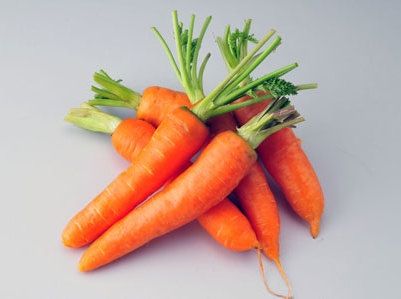During the Chinese New Year, the refrigerator is surely full of many kinds of food, but even people who have been cooking for many years will experience a delay: When food is put into the refrigerator, it will be “safeâ€, and will not degrade or deteriorate. In fact, the refrigerator only inhibits the rate of bacterial growth through cooling, and does not prevent the growth of bacteria. That is to say, once the food is stored in the refrigerator for too long, it will deteriorate as well, and when it enters the stomach, symptoms such as vomiting, diarrhea and “refrigerant food poisoning†will appear.
"Refrigerator food poisoning" - a sharp increase in nitrite
In the nutrition industry, there has always been a saying that overnight vegetables, especially overnight vegetables, cannot be eaten, because overnight vegetables have high levels of nitrite, whereas heating methods can only eliminate microorganisms and bacteria, while nitrite can not be removed by heating. of.
There was a trial that found that the contents of nitrite in the 4 dishes increased significantly after 24 hours of cooking, and all exceeded the limit standard of the “Contaminant Limit Standard in Foodâ€. Among them, fried vegetables exceeded the standard by 34%, and leek was fried. The eggs exceeded the standard by 41%, the braised pork exceeded the standard by 84%, and the braised calamari exceeded the standard by 141%. The content of nitrite in the leek is exceedingly severe because the braised dishes contain nitrates in their flavor and the leek has a high protein content. After 24 hours, the microorganisms decomposed a large amount of protein compounds, which promotes the conversion of nitrate into nitrite. The reason why nitrite is contained in vegetables is because nitrogen fertilizer is applied during the growth of vegetables, and nitrate comes from nitrogen fertilizer.
In short, neither leftovers nor leftovers should be kept in the refrigerator for long periods of time, because nitrite adults can ingest toxins in the range of 0.2 to 0.5 grams, which can cause esophageal cancer, stomach cancer, and liver cancer. Colon cancer and other diseases.

Four types of food should not be placed in the refrigerator
Experts say that although the refrigerator has been in the home for many years, it does not mean that every housewife knows how to use the refrigerator properly. Is there anything to worry about when food is put into the refrigerator? What is the difference between different food preservation?
Experts pointed out that the following four types of food should not be placed in the refrigerator:
(1) Root vegetables—Cortical thick potatoes, carrots, squash, wax gourds, onions, etc. can be stored at room temperature. In addition, cucumbers and green peppers tend to become dark and soft in the refrigerator for a long time.
(2) Tropical Fruits—Tropical and subtropical fruits such as bananas and mangoes have poor adaptability to low temperatures. If they are kept in the refrigerator, they will freeze and damage the fruits and affect the taste.
(3) Pastries—The starchy foods such as taro, Hanamaki and bread will be dried and hardened in the refrigerator. If they must be stored, they must be packed in plastic wrap or fresh-keeping bags before being placed in the freezer.
(4) Marinated Meat—Bacon, ham, and other meat pickled products are suitable for use in cool, ventilated areas. This helps to ensure the flavor of the food. If they are put into the refrigerator, the humidity is too high and it is prone to haggling. Instead, it shortens the storage time.
It is worth reminding that after thawing frozen foods (such as meat, fish, etc.), the bacteria will rapidly multiply, and this thawed food is not suitable to be put back into the refrigerator again. Therefore, before putting the meat food into the freezing room, it is best to first divide it into a proper amount of packaging and one pack of thawed at a time.
In addition, food must not be cooked and mixed together. To prevent odors, use cling film or a crisper to store food.
How long can the refrigerator food be stored?
At present, the design of refrigerators is more and more advanced. In the eighties and nineties of the last century, the refrigerators were divided into refrigerators and freezers, the temperature of the refrigerators was 4-5°C, and that of the freezers was -18°C. The refrigerator now has an additional space for beverages stored at 12°C.
The food stored in each space is classified. The freezer can store meat, fish, or fresh vegetables for 1-3 days, while the freezer is where quick-frozen food is placed. The following is the time limit for regular food consumption:
Beef: refrigerate for 1-2 days, freeze for 90 days
Meat platter: chilled 2-3 days, frozen 270 days
Chicken: Frozen for 2-3 days, frozen for 360 days
Fish: refrigerated 1-2 days, frozen 90-180 days
Fresh eggs: 30-60 days of refrigeration
Cooked eggs: refrigerated for 6-7 days
Milk: refrigerated 5-6 days
Yogurt: Refrigerated 7-10 days
Drinks, alcohol: Store at about 4°C, drink as much as possible after opening
Leftovers: refrigerated for no more than 3 days
Leftovers: Vegetables should not be stored in the refrigerator, it is recommended to eat now
Peanut butter, sesame paste: After opening jars, refrigerate for 90 days
Tomatoes: refrigerated for 12 days
Celery: Refrigerated 7-14 days
China Extract Powder For Use As Dietary Supplement Extract Powder, Extract Powder Manufacturer
Shaanxi Kang New Pharmaceutical co., Ltd. , https://www.bodybuildingoil.com